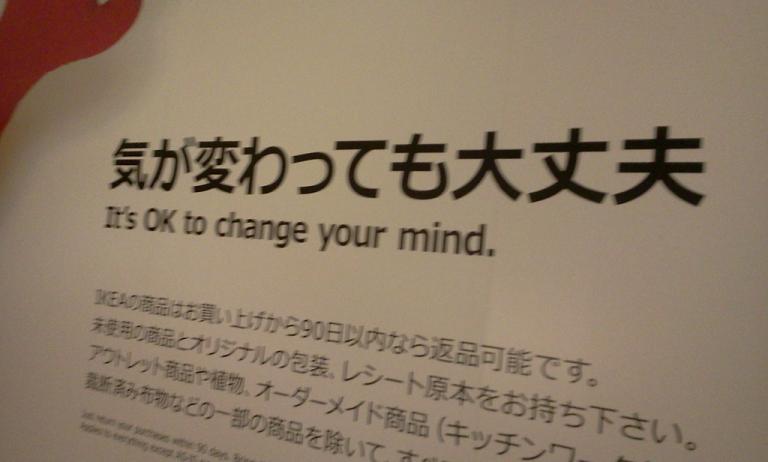I recently found myself in yet another Facebook discussion about why vigilante attacks on people with bad politics — “punch a Nazi” — is both an ethical and a tactical failure, discrediting leftism and playing directly into the hands of Trumpists and law-and-order Republicans.
I’ve previously discussed how this behavior provides a perverse incentive to brand others as “Nazis”, is problematically similar to the idea of “glorious struggle” that powers fascism, and gives the right ammunition to use against us. It reminds me of the admonition from the Principia Discordia: “A person belonging to one or more Order [of Discordia] is just as likely to carry a flag of the counter-establishment as the flag of the establishment – just as long as it is a flag.” I will refer you to my past posts “Fighting Evil Doesn’t Make You Good” and “Nazis Are Bad. Now What?” for those general arguments on the topic.
But this discussion brought up two interesting points. When I pointed out that violence does not change anyone’s mind, one of my interlocutors wrote “There is no way what whatsoever to change a person’s mind. I don’t need to change their minds, just their behavior,” and went on to point to North Korea as an example of how fear can control people’s behavior.
This was curious for two reasons. First, this person claimed to be an anarchist; someone with such a self-identification citing North Korea as an example of the sort of coercion they wish to apply to others, is emblematic of the confusion of the moment. If you are seeking to coerce the speech (however ignorant and vile) of others by force and fear you are ipso facto an authoritarian, not an anarchist. As the Dead Kennedys told us, “When you ape the cops, it ain’t anarchy.”
Second, like me this person recently returned from the Starwood Festival, a magical event hosted by the Association for Consciousness Exploration and dedicated to the proposition that consciousness can be changed. The motto “Change!” next to a picture of a brain is frequently found in festival artwork, and ACE cofounder Jeff Rosenbaum explained, “Everything is explored by altering it…The way you study consciousness is by changing your consciousness.”
(And a salute in passing here to recently deceased Starwoodian Paul Krassner, the man who named and help found the Yippies, who interviewed Rosenbaum for a story and got that quote.)
I personally did my best to work some magic during that week at Wisteria and change some minds, and I think I succeeded at least a little bit.

“Well, sure,” you might object, “it’s one thing to do some mind-change on the sort of people who show up for something like Starwood. But the polluted and broken minds of racists and bigots cannot be changed.”
Daryl Davis would disagree. This African-American blues musician has convinced over 200 members of the Ku Klux Klan to hang up their robes. He did not do this by punching them, but by talking to them.
(I pause here to insert a cautionary note of clarification: none of this is meant to speak against legitimate self-defense. This is about dealing with unarmed non-combatants infected by bad ideas. To riff off of a Firefly quote well-known to fandom, if an armed Klansman ever tries to kill you, you try to kill them right back.)
Davis talked about how he was able to accomplish these remarkable conversions:
The best thing you do is you study up on the subject as much as you can. I went in armed, not with a weapon, but with knowledge. I knew as much about the Klan, if not more than many of the Klan people that I interviewed. When they see that you know about their organization, their belief system, they respect you. Whether they like you or not, they respect the fact that you’ve done your homework. Just like any good salesman, you want a return visit and they recognized that I’d done my homework, which allowed me to come back again.
That began to chip away at their ideology because when two enemies are talking, they’re not fighting. It’s when the talking ceases that the ground becomes fertile for violence. If you spend five minutes with your worst enemy — it doesn’t have to be about race, it could be about anything…you will find that you both have something in common. As you build upon those commonalities, you’re forming a relationship and as you build about that relationship, you’re forming a friendship. That’s what would happen. I didn’t convert anybody. They saw the light and converted themselves.
“But that’s the Klan, not Nazis!” you may object. “Neo-Nazis are orders of magnitude worse!”
That, of course, is a debatable proposition. But Pete Simi, a Chapman University sociologist who has extensively researched Neo-Nazis, says that even violent racist radicals and extremists can be rehabilitated — and that violent confrontations by anti-racists may make that harder.
The problem, Simi notes, is that “[w]e haven’t wanted to acknowledge that we have a problem with violent right-wing extremism”, and so have devoted almost no resources to rehabilitation. And effective rehabilitation can be resource intensive, involving partnerships with social workers, educators, and health care providers to handle the range of problems that led these people into extremism in the first place. He says such people may need education or employment training, or “maybe they have some housing needs, maybe they have some unmet mental health needs,” which may include past trauma or substance abuse.
But this approach is still far more effective and less expensive than throwing these people into our so-called “criminal justice” system.
Indeed it’s remarkable that some of the folks yelling “punch a Nazi!” the loudest are the same folks calling for criminal justice reform, who would be the outraged at the system for mistreating an inmate who had committed, say, an armed robbery. Or even child sex trafficking — I think one of the Twitter commenters I saw talking about how even Jeffrey Epstein doesn’t deserve the hellhole conditions of our jail and prison system that drove him to a suicide attempt, has also cheered potentially lethal assaults on people based on their bigoted fascist speech.
Well, looking for any sort of principled consistency in American politics has always been like Diogenes with his lamp looking for an honest man.
But before we get too lost in the weeds of politics, let’s return to the topic of magic.
Magic has been defined by Dion Fortune as the art of changing consciousness at will; thus to work magic is to accept the hypothesis than minds can change.
“But that’s about changing one’s own consciousness! No one can change another’s mind!” you may object. But as I’ve discussed before, we have an entire multi-billion-dollar industry devoted to the proposition that black magic can change peoples minds, via such simple mantras as “Have a Coke and a smile.”
Magicians seek to alter the consciousness, change the minds, of other people all the time. Be it a love spell or healing work or prosperity magic to attract more customers to our business, changing minds is our game.

Minds do change. That is a fundamental principle of magic — and it should inform our politics as well.
So if you’re looking for a more productive way to fight race hate than assaulting people, let me suggest contributing to a group such as Life After Hate, a group founded by former extremists and dedicated to helping people change, to helping them leave violent right-wing groups and, in their words, “inspiring all people to a place of compassion and forgiveness — for themselves and each other.”
Sending them a few dollars is a lot more likely to actually help than posting another “punch Nazis!!1!” meme on your social media accounts.
In fact, if you send them money and then comment below on this post — I’ll take your word for what you send — I will match contributions up to a total of $150. Attention angry Facebook commenters who have been threatening to punch me for taking a stand against vigilante violence: here’s chance to hit me in the wallet. Come at me, give till I hurt.
Postscript: This was mostly written on Saturday night at the famed Club Charles bar in Baltimore. As I walked to my car after closing time I ran into a friend from my local art scene, who asked what I’d been doing. In the ensuing conversation he brought up a key term: deradicalization.
This is a word usually applied to radical Islamists, but we ought to recognize that it applies to radical racists as well. I suspect that few leftist advocates of Nazi-punching would support Islamist-punching as a way of addressing the very real and dangerous problems of jihadism, but would recognize that people fall into radical Islamism for a combination of political and socioeconomic factors, and can be deradicalized though a combination of policy changes and individual support. We ought to recognize racist extremism and Neo-Nazism as a beast of the same character.

















